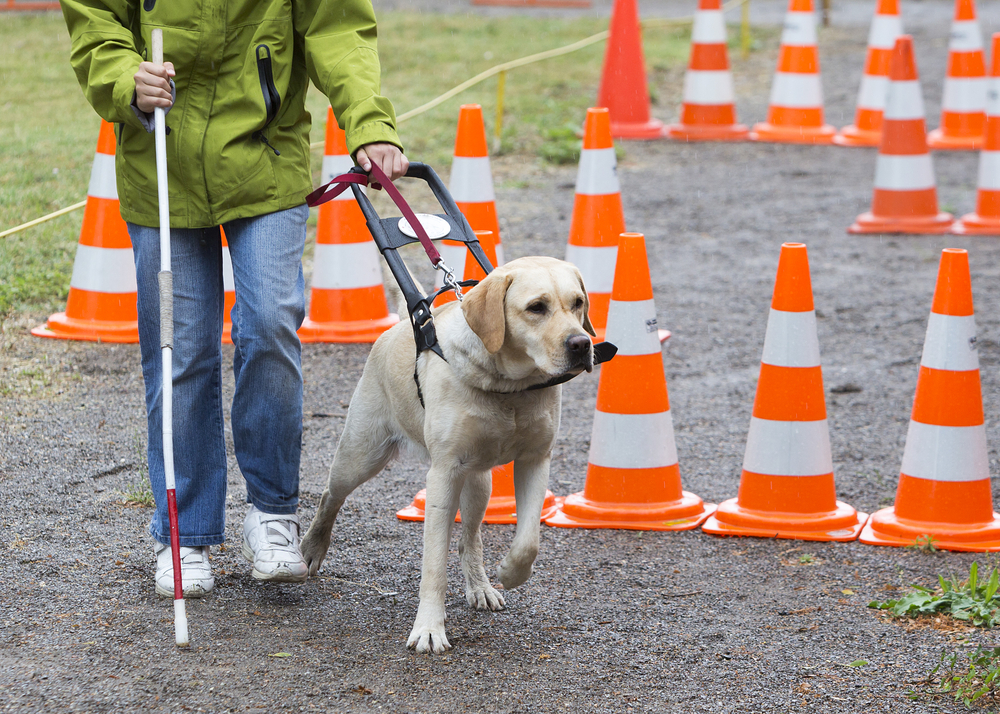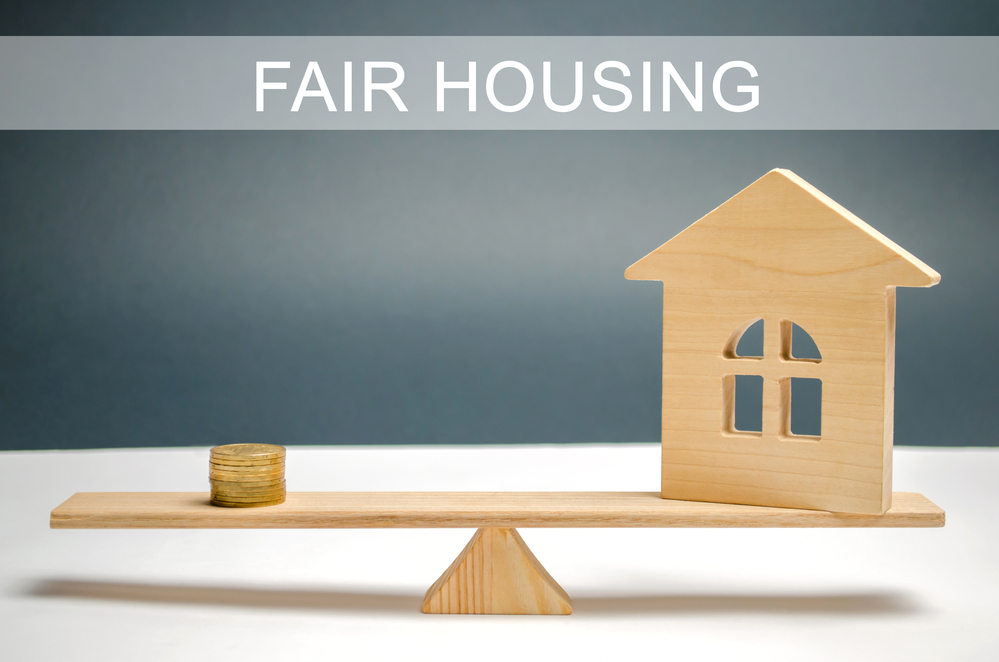
The Fair Housing Act (FHA) is essential for many people with disabilities. It ensures they can live comfortably with their assistance animals. These animals, including service and emotional support animals, provide essential help for people with physical or mental impairments. This blog will discuss why fair housing for assistance animals is important, the laws that support it, and how housing providers handle requests.
Needing a Property Management Company near Las Vegas and Henderson? Visit our office today!
Understanding Assistance Animals
Assistance animals fall into two main categories: service and emotional support. Service animals, often dogs, are individually trained to perform tasks for people with disabilities. They help with various needs, from guiding visually impaired people to alerting those with hearing impairments.
Emotional support animals (ESAs) are not trained for specific tasks but provide emotional support to people with mental impairments. They help reduce symptoms of conditions like anxiety and depression. While ESAs can be any species, dogs and cats are the most common.
Difference Between Assistance Animals and Emotional Support Animals
While both service animals and emotional support animals are considered assistance animals under the FHA, there are important differences between them:
- Service Animals: These animals are specifically trained to perform tasks directly related to a person’s disability. For example, a service dog might guide a visually impaired person or alert a hearing-impaired individual to sounds.
- Emotional Support Animals: ESAs provide comfort and emotional support to individuals with mental health conditions. They are not trained to perform specific tasks but can help alleviate symptoms of conditions such as anxiety, depression, or PTSD.
Legal Protections
The Fair Housing Act (FHA) protects people with disabilities from discrimination in housing. It requires housing providers to make reasonable accommodations for assistance animals. This means they must allow assistance animals, even if they have a “no pets” policy.
The FHA defines a disability as a physical or mental impairment that substantially limits one or more major life activities. This broad definition covers many conditions, ensuring more people can benefit from assistance animals.
Role of Fair Housing Laws
Under the FHA, housing providers must make reasonable accommodations for disabled residents. This includes allowing assistance animals, even if the property has pet restrictions. Reasonable accommodation means adjusting rules, policies, or practices to help a disabled person.
Handling Requests
When a person requests an accommodation for an assistance animal, housing providers must engage in an interactive process. They should communicate with the person to understand their needs and determine a fair solution. They can ask for documentation from a medical provider to verify the person’s disability and the need for the assistance animal.
Avoiding Undue Burden
Housing providers are not required to accommodate requests that create an undue burden or majorly change their operations. For example, if allowing a miniature horse in a small apartment complex would cause significant difficulties, the provider might deny the request. However, these cases are rare, and the burden of proof is on the housing provider.
Benefits of Assistance Animals

Physical and Mental Health
Assistance animals play an important role in the well-being of people with disabilities. Service animals help with daily tasks, increasing independence and safety. Emotional support animals provide comfort and reduce symptoms of mental health conditions. This support can lead to better overall health and quality of life.
Community Integration
Fair housing for assistance animals helps disabled people integrate into their communities. By providing reasonable accommodations, housing providers ensure disabled residents can live where they choose. This inclusion is vital for social interaction and access to community resources.
Reducing Stigma
Allowing assistance animals in housing can help reduce the stigma associated with disabilities. When people see assistance animals in everyday settings, they become more aware of the needs and rights of disabled individuals. This awareness fosters acceptance and understanding.
Application Process
Making a Request
A person must inform the housing provider of their disability-related need to request reasonable accommodation for an assistance animal. This request can be made verbally or in writing. The person should explain how the animal helps with their disability and provide documentation if needed.
Providing Documentation
Housing providers can ask for documentation from a medical provider to verify the need for an assistance animal. This documentation should confirm the person’s disability and explain how the animal helps. It should not disclose specific medical details but focus on the accommodation’s needs.
Interactive Dialogue
Once a request is made, the housing provider and the person requesting the accommodation should engage in an interactive dialogue. This discussion aims to find a fair solution that meets the person’s needs without causing undue hardship to the provider.
Challenges and Solutions
Administrative Burden
Handling accommodation requests can be challenging for housing providers. They must balance the needs of disabled residents with property policies and other residents’ concerns. To reduce the administrative burden, providers can establish clear procedures for handling requests and train staff on fair housing laws.
Pet Fees and Restrictions
Some housing providers charge pet fees or have pet restrictions that can complicate accommodations for assistance animals. Under the FHA, assistance animals are not considered pets, so providers cannot charge pet fees or impose pet restrictions on them.
Education and Training
Educating housing providers and residents about fair housing laws and the rights of disabled people can help reduce conflicts. Training staff on handling accommodation requests and interacting with assistance animals can improve compliance and create a more inclusive environment.
Role of HUD Guidance and State Laws
The U.S. Department of Housing and Urban Development (HUD) provides guidance on fair housing for assistance animals. This guidance helps housing providers understand their obligations under the FHA and handle requests appropriately. Following HUD guidance can prevent discrimination and ensure compliance with fair housing laws.
In addition to federal laws, many states have fair housing laws protecting people with disabilities. These laws can provide additional protections and clarify the rights of disabled residents. Housing providers should be aware of both federal and state laws to ensure full compliance.
Case-by-Case Basis
Each accommodation request must be considered on a case-by-case basis. The specific needs of the person requesting the accommodation and the nature of the housing situation must be considered. This individualized approach ensures that fair solutions are found for each case.
If a person’s disability and the need for an assistance animal are readily apparent, housing providers should not ask for documentation. For example, if a person with a guide dog is blind, the need for a service animal is obvious, and no further documentation is needed.
Role of Property Managers in Fair Housing for Assistance Animals

Property managers are crucial in ensuring compliance with fair housing laws, especially regarding assistance animals. Their responsibilities include:
Reasonable Accommodation Requests
When a resident with a disability requests an accommodation for an assistance animal, property managers must engage in an interactive process. This includes:
- Verification of Disability: If the disability is not readily apparent, the housing provider can request documentation from a medical provider that verifies the individual’s disability and the need for the assistance animal.
- Evaluating Requests: Each request should be considered case-by-case to determine if the accommodation is reasonable and does not impose an undue burden or fundamentally alter the nature of the housing provider’s operations.
Administrative Burden and Documentation
Handling requests for assistance animals can create an administrative burden. Property managers should develop clear policies to streamline the application process. This includes providing detailed information on what documentation is needed and ensuring compliance with HUD guidance and state laws.
Legal Protections and Compliance
Compliance with fair housing laws is critical. Courts agree that denying a reasonable accommodation request can lead to legal consequences. Property managers must ensure they do not impose undue hardship on individuals with disabilities. This includes avoiding policies that discriminate against assistance animals, such as blanket bans or excessive documentation requirements.
Fair Housing for Assistance Animals: A Commitment to Inclusive Communities
Fair housing for assistance animals is essential for many people with disabilities. It ensures they can live comfortably and independently with the support they need. By knowing and complying with fair housing laws, housing providers can create inclusive communities that respect the rights of disabled residents.
At Faranesh Real Estate and Property Management Services, we understand the importance of fair housing for assistance animals. Our commitment to creating inclusive communities in Las Vegas ensures that all residents, including those with disabilities, have the support they need to live comfortably and independently.
We provide comprehensive property management services, including handling reasonable accommodation requests and ensuring compliance with fair housing laws. Our experienced team is well-versed in the requirements of the Fair Housing Act and is dedicated to maintaining a welcoming environment for all residents.
If you have any questions about fair housing for assistance animals or need assistance with property management, contact us today. We are here to help you manage the complexities of housing regulations and create a supportive community for everyone.




